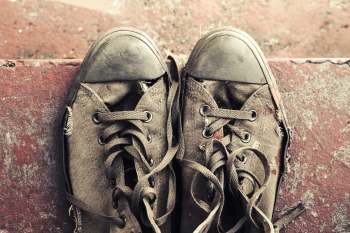Researchers are making the case for bringing the forest to cities, but the reason might surprise you.
While trees and bushes add much-needed greenery to concrete jungles, planting them near highways can also dramatically lower air pollution from cars, according to a new Georgia State University study published in PLoS One.
According to a news release on the findings, researchers took air-quality samples at five locations near metro Atlanta highways during two three-month periods. They found that sites with natural or ornamental plants had 37% less soot and 7% fewer ultrafine particles than their treeless counterparts.
"Trees and bushes near roadways don't solve the problem of air pollution caused by motor vehicles, but they can help reduce the severity of the problem," said lead author Roby Greenwald, associate professor at the GSU School of Public Health.
The Environmental Protection Agency says that particle and roadway air pollution can cause a host of health issues, including asthma, difficulty breathing, cardiovascular disease, preterm births, and childhood cancer.
Because of the serious health problems associated with vehicle pollution, Greenwald and his colleagues stressed the urgency of implementing solutions, such as planting trees. Roadside vegetation helps remove air pollution because the trees act like Velcro, catching tiny pollution particles that cling to them.
However, while trees and bushes can reduce air pollution, they unfortunately don't help with carbon or ozone pollution, according to Greenwald.
He said that to further reduce health issues and poor air quality associated with interstates, cities should make it safer and easier for people to travel without cars. Improving public transportation or bicycle and pedestrian infrastructure would give people more options to go carless.
Luckily, cities worldwide are helping to make biking and walking trendy again, from Paris banning cars in certain neighborhoods to city planners turning an old steel mill in Utah into a walkable city. Montreal also showed what's possible by transforming a busy downtown street into a car-free zone.
"We should plant more trees along roadways because they provide benefits that go beyond aesthetics," Greenwald said. "But I don't want to give anyone the impression that we can solve all of the problems associated with motor vehicle emissions simply by planting trees."
With ingenuity and progressive thinking, we can start regreening our cities, making them healthier, safer places for everyone. While planting more trees isn't a comprehensive solution, other ways cities can make a difference include ramping up electric vehicle charging and electrifying city buses.
Join our free newsletter for cool news and cool tips that make it easy to help yourself while helping the planet.








